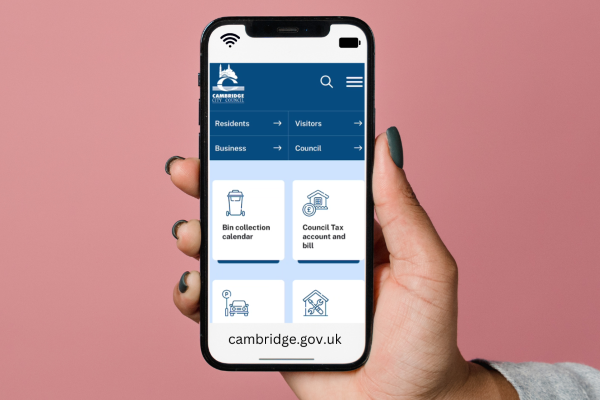CAMBRIDGE City Council has reiterated its commitment to tackling the scourge of damp, condensation and mould with the introduction of a new policy to address the issue.
The newly-adopted Damp, Condensation and Mould Policy, approved by councillors at Housing Scrutiny Committee, builds on work already being done to support tenants. It formally sets out how the council will continue to address the issue in council-owned properties as a priority, and in a variety of ways.
Among the new or enhanced steps which the council is taking to proactively reduce the occurrence of damp, condensation and mould in council properties, now formalised in the new policy, are:
- Providing additional training for housing officers, repairs staff, surveyors and contractors to help identify properties where there is a concern and to report these back to a dedicated team
- Undertaking regular tenancy audits, which include investigating occurrences of damp, condensation and mould
- When a property becomes empty, looking for signs and causes of damp, condensation and mould, assessing ventilation and carrying out work to rectify issues before a new tenant moves in
- Inspecting properties and blocks where issues have been identified in neighbouring ones, to prevent problems spreading
- As part of the council’s programme to build new council homes, installing modern and efficient heating, ventilation and insulation programmes
- Investigate opportunities for providing secure drying areas in communal flat blocks to reduce the need to dry washing on radiators or inside flats
- Reviewing each damp, condensation and mould case eight weeks after it has been resolved to see if the proposed solution has been effective.
The council’s preparatory work towards enhancing its existing approach started in 2022, forming part of its actions to protect and support tenants in the light of the ongoing cost of living crisis.
Since then, the council has been reviewing and adapting its strategy and approach towards dealing with an anticipated increase in damp, condensation and mould issues due to significant increases in energy costs making it harder for some tenants to heat their homes sufficiently. The new policy is the culmination of that work.
Cllr Gerri Bird, Executive Councillor for Housing and Homelessness, said: “The health and welfare of our tenants has been a longstanding priority, and for a number of years we have been working to improve our approach to damp, condensation and mould issues in council properties.
“Our new policy, along with the good practice already being followed, clearly sets out the steps we will take after receiving a report, either from tenants themselves, from officers, contractors or other people visiting their properties.
“The aim of the policy is to minimise cases of damp, condensation and mould as far as possible. But when cases do arise it should be very straightforward for people to report any ongoing or potential issues, so we can investigate and rectify them promptly in a way that is personalised to the household’s needs. None of our tenants should feel they are being left alone to deal with it themselves.
“We will back this reactive and urgent work up by doing even more analysis of where issues occur or are likely to occur, so we can try and proactively prevent problems.
“Any council tenant who is concerned about damp, mould or condensation in their home should email condensation@cambridge.gov.uk, report it on the council website or phone 01223 457000. Our officers will then investigate and provide all the help, advice and practical steps tenants need to get it addressed as quickly as possible.”
Once a report of damp, condensation or mould has been received the tenant will be contacted within two working days to arrange an inspection of the property by a council surveyor.
If the inspection shows that condensation and surface mould is causing the problem, the council will talk with the tenant and evaluate what actions can be taken to address the problem. This may include additional ventilation and insulation, further investigation of damp and humidity levels or providing support and advice to tenants about heating and ventilating their home.
If fuel poverty is identified as a factor, the council can also offer addition support through its Tenancy Support and Financial Inclusion Support officers.



